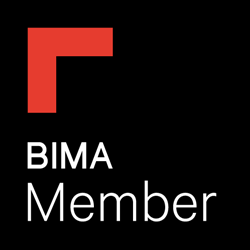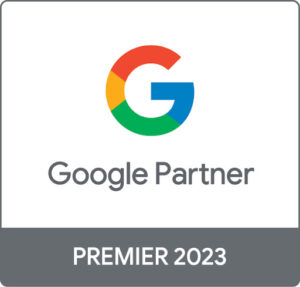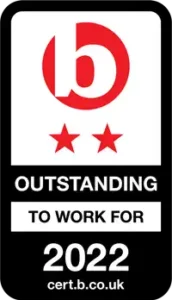Top Local SEO tips for businesses looking to dominate local search results
The nature of how we search and the content search engines deliver us continues to change. Search engines are clearly on a mission to deliver users with the most relevant results for their query, personalised based on their location, search history and browsing behaviour.
This means localised search results are now more important than ever, and if your business appears at the top of Google for keywords that relate to your business and its location – you’ll generate more leads and sales from your website.
It’s that simple folks.
But, how on Earth do you optimise your website to conquer the local search results? Well, as with all things worth having – it doesn’t come easy. You’ve got to earn the right to be number one in Google, and here’s how…
Ranking factors for Local SEO
For many websites, appearing at the top of the search results for localised keywords is vital to their success. Local search (Local SEO) has exploded in recent years, and if your website doesn’t appear at the top of Google’s localised keyword searches, then you’ll struggle to attract local customers to your business.
Localised customers are also more likely to enquire or purchase from your website too (because they’re, well, local…). So, raising your visibility to a local audience is imperative to your success.
By far the most influential local ranking factor is your businesses’ proximity to the user’s location when they search.
Here are five of the top local SEO ranking factors to help you dominate the local search results:
- Optimise your Google My Business listings.
- Create localised landing page silos.
- Localised onsite SEO optimisation.
- Earn and build backlinks from local websites related to your business’s niche.
- Create localised content that helps your community.
- Encourage your customers to leave quality reviews about your business.
Optimise your Google My Business listings
The ultimate tip for optimising your GMB listing is to only pick the most exactly match business category when listing your business. So many businesses still choose multiple category listings thinking that more is better.
The truth is, Google prefers businesses to only categorise their listing under the most relevant category – eg. An Italian restaurant should pick “Italian restaurant” instead of “restaurant”, etc.
Make sure your map listing and all business information including phone numbers, address, opening times and website URL is 100% accurate, this goes for all your directory listings as well. Also you need to make sure all information listed is relevant to your location – don’t try to create a GMB profile in London if your business and all phone numbers aren’t local to London.
It’s very important to ensure the phone number listed matches the landing page it’s related to.
A few more top tips for optimising your Google My Business profile:
- Pick a picture or logo that makes your listing stand out against the competition.
- Check the most popular times of the day and use AdWords campaigns to drive visitors to your website during those times.
- Ask your local customers to leave quality reviews based on real experiences they’ve had with your business – more quality reviews will give your website a high star rating and will encourage people to click your result over your competitors.
- Respond to the reviews you already have – openly thanking your customers is fantastic for customer loyalty and responding to the not-so-favourable reviews shows that you’re committed to customer service.
- Add at least 5 – 8 quality photographs to your profile including images of your team, your premises and your top products and/or services.
- Consider adding a 360 degree-view or a virtual tour of your office / premises.
Post updates on your business’s Google+ page often to show how active your business is.
Create localised landing page silos
Optimising your website for multiple locations is fair game in Google. It’s natural for businesses to serve customers in multiple locations, so why not optimise your website for those locations too?
For example, if you have an office or a shopfront in both London and Brighton – you’d better get optimising because that’s twice the amount of local customers you can target with twice the amount of keywords you can optimise for.
Create unique pages for each of your business’s physical locations, just as long as those locations actually exist! As well as creating and optimising location pages, you could create a Google My Business listing for multiple locations – and buffing up its ranking power by building links from local directories.
Localised onsite SEO optimisation
Optimising your location pages for keywords within your niche is vital to getting it ranking in Google and appearing in front of your local audience. Make sure each of your location pages are optimised for the following on-page elements:
- Page Title
- Meta Description
- Location featured within the URL
- H1, H2 & H3 Heading Tags
- Natural use of semantic keywords within the body content
- Relevant image with Alt Image Text to make it more visually engaging
- Inbound links from other pages with relevant keyword anchor text
- Backlinks with relevant keyword anchor text from local directories and businesses
- Useful links to other pages that relate to the webpage.
- Contact information that’s relevant to the location of your business.
Finally, to really nail the local listings you should add Schema / Rich Snippets for expanded search listings and for voice search. Voice search is on the rise and is totally fragmented in 2017 – people don’t search just with keywords anymore and Google isn’t the only way to find brands online.
Optimise your location pages for voice search because more and more people use software like Siri and Google Assistant (especially on mobile phones) to search for local businesses.
Think about it, how many times have you asked your mobile to “Find me my nearest coffee shop”? If your business isn’t optimised for voice search, you’ll be missing out on a huge amount of potential customers.
Earn and build local links within your community
Backlinks are a hugely powerful ranking metric in SEO, especially if they’re relevant to your business, its location and highly authoritative.
To truly win in local Google search, you need to focus on earning and building powerful backlinks from local citations and business directories – localised link building carries a huge amount of weight in Google.
Here are my top 10 tips for local link building strategies:
- Local business directories
- Local charity websites
- Local sponsorships (football teams, conferences, community websites, etc.)
- Local community forums
- Neighbourhood watch groups
- Press releases to local newspapers
- Create partnerships with local businesses
- Post on social media community groups
- Blog about local news and events within your location
- Create FAQs that relate to your location
Create content that engages local customers and helps your community
Whenever we create content, we make it our mission to provide the best resource for the audience we’re writing it for – all content must be insightful, useful and sharable. We do this with thorough customer and audience research using the customer empathy map.
This helps us define the content we need to create because we understand our customers better. Think about building a relationship and a rapport with your would be customers / targeted audience.
- Focus on specificity, localised and personalised content that speaks to local communities.
- Great local, FAQ content for the people searching within your community.
- Identify who the product expert is within your business and work with them to extract information that your customers are looking for answers.
- Ask yourself why you should be number 1 in Google. Answer the question honestly and truly, which makes it much easier to write great content.
Pro tip: read your content aloud before you publish your blogs and pages, if it doesn’t sound conversational then it’s wrong for your audience.
Reviews convert customers
Recent studies have shown that up to 92% of consumers read reviews online before choosing to purchase from a business. But we don’t have to convince you on how powerful having real reviews from your customers can be for your business.
Keywords within the review matter, and proximity of the search (Google will show results closest to the user’s location). The quality of the review also counts – Google prefers and places higher value on reviews that are longer and voted as ‘helpful’ (the little thumbs up button) by other Google users.
How do you generate more reviews for your business?
- Ask your customers to leave reviews once their experience has ended.
- Set up a customer feedback loop on your website.
- Set up an automated email for Google reviews using the review link.
- Offer your customers an incentive to leave reviews for your business.
- Focus on delivering outstanding customer service – customers are far more likely to leave feedback when they are delighted by their experience.
Aim to generate more reviews on third party websites like TrustPilot, Yelp, Foursquare and Yahoo! Local Listings because these sites will drive traffic to your website and raise the awareness of your brand to people searching for local businesses.








